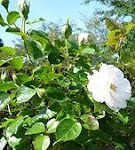Extraordinary, very unusual film, in that this film is perhaps the only one that even mentions the Hinglaj Maataa temple, and the arduous pilgrimage that people from all over India used to undertake crossing a difficult desert terrain towards the end.
The first acquaintance with this was the quintessential pilgrimage song that remained in subconscious memory with its refrain, and it all came back when chanced to find it on internet and hear it. It was not the first time one was hearing this song, but often significance escape one until need arises.
If this film, and the song invoking Mother, doesn't wake up those blinkered and lulled by lies claiming India was never one, that Baluchistan is not part of india or never was, that Baloch are not indian - nothing will, for they are not blinkered or lulled or asleep, merely pretending!
For a Bengali film to be titled Maruthirtha Hinglaj is as much indicative of those pronouncements against India's unity, as the fact related by Tarek Fateh about the Baloch defending the temple of Hinglaj Maataa, the reigning Goddess that is deity thereof ,from the assaukts of jihadists and pakis.
This song, sung in the true Bhakti spirit of Baul and of Mother Goddess worship, features a small caravan on feet and some on camels, in pilgrimage to the Hinglaj Maataa temple, across the desert - presumably not a group of pilgrims that belong to the nearby region, since they are crossing a desert, and the song and scene are about pains thereof. This can only be the desert that spans much of Rajasthan and beyond, perhaps including the Gujarat border.
And whether the story, the scene, are about the people featured here being from Bengal or not, the film and the song and the verses are certainly Bengali. At least one character, an old woman, does seem Bengali, and that makes the contention about unity of India far stronger - for the pilgrimage all the way from a green, water rich Bengal to a temple across not only a thousand miles but across also a severe desert with its horrendous heat, for an old woman to suffer to visit a temple, not certain of life in the process much less comfort, is only possible with an underlying unity of the culture, the soul.
When a song, a film with verses, music, and artists performing the scene, the director and writer et al are all from Bengal, and it's all about a group of Indian devotees on a painstaking pilgrimage across deserts of India, to reach Hinglaj Maataa temple, questioning unity of India is merely the ex colonial conspiracy to divide and destroy India.
https://www.youtube.com/watch?v=ktgMZIvV9ow
The first acquaintance with this was the quintessential pilgrimage song that remained in subconscious memory with its refrain, and it all came back when chanced to find it on internet and hear it. It was not the first time one was hearing this song, but often significance escape one until need arises.
If this film, and the song invoking Mother, doesn't wake up those blinkered and lulled by lies claiming India was never one, that Baluchistan is not part of india or never was, that Baloch are not indian - nothing will, for they are not blinkered or lulled or asleep, merely pretending!
For a Bengali film to be titled Maruthirtha Hinglaj is as much indicative of those pronouncements against India's unity, as the fact related by Tarek Fateh about the Baloch defending the temple of Hinglaj Maataa, the reigning Goddess that is deity thereof ,from the assaukts of jihadists and pakis.
This song, sung in the true Bhakti spirit of Baul and of Mother Goddess worship, features a small caravan on feet and some on camels, in pilgrimage to the Hinglaj Maataa temple, across the desert - presumably not a group of pilgrims that belong to the nearby region, since they are crossing a desert, and the song and scene are about pains thereof. This can only be the desert that spans much of Rajasthan and beyond, perhaps including the Gujarat border.
And whether the story, the scene, are about the people featured here being from Bengal or not, the film and the song and the verses are certainly Bengali. At least one character, an old woman, does seem Bengali, and that makes the contention about unity of India far stronger - for the pilgrimage all the way from a green, water rich Bengal to a temple across not only a thousand miles but across also a severe desert with its horrendous heat, for an old woman to suffer to visit a temple, not certain of life in the process much less comfort, is only possible with an underlying unity of the culture, the soul.
When a song, a film with verses, music, and artists performing the scene, the director and writer et al are all from Bengal, and it's all about a group of Indian devotees on a painstaking pilgrimage across deserts of India, to reach Hinglaj Maataa temple, questioning unity of India is merely the ex colonial conspiracy to divide and destroy India.
https://www.youtube.com/watch?v=ktgMZIvV9ow

No comments:
Post a Comment